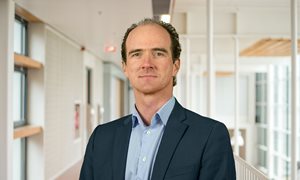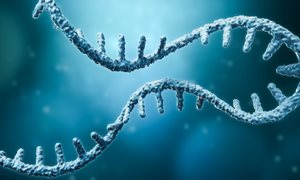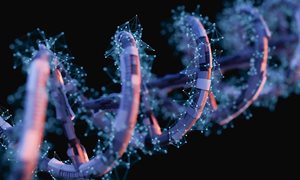
A Dutch consortium will receive almost 5 million euro’s from NWO to jointly start an ambitious project, called CureQ, on various rare and genetic brain disorders that lead to abnormal movements. Donders PI Bart van de Warrenburg (Department of Neurology) was one of the main applicants of this ‘Nationale Wetenschaps Agenda (NWA)’ grant.
Huntington’s disease and some genetic ataxias are different degenerative brain diseases, but share various features. These diseases can start at any age, are progressive, and lead to loss of mobility and a reduced lifespan.
While there are exciting therapeutic options at the horizon, for example RNA-targeting strategies, these potential interventions also raise 4 urgent questions that the CureQ consortium will attempt to tackle:
- When is the optimal time to start treatment?
- Who will benefit from these therapies and can we derive patient-tailored predictions?
- Can alternative therapeutic strategies be developed to lower the mutant protein that are less invasive?
- How to aid gene-carriers in personal decisions on life-planning and treatment options?
Similar mechanism, different diseases
Patients can be divided into clusters, differing from patients with an early onset of the disease to onset at an adult age, and even gene carriers with very late or no disease at all. The mechanism behind this is the variation in the size of the expanded ‘CAG repeat’, which is the type of genetic mutation that these disease share. The longer this CAG repeat, the earlier the disease manifests. Both age-at-onset (AO) and clinical features are very different for these clusters and patients may require different preventive or therapeutic approaches. While CAG repeat length is predictive, it typically explains about 50% of onset variance.
The inter-individual spread in disease onset between people with the same expanded CAG repeat can be decades, implying the existence of additional disease modifiers. Genetic profiling alone has not led to better prediction of disease onset and hence timing and evaluation of future preventive interventions. The consortium will generate robust and sensitive phenotypic, cell biological read-outs for proper and patient-tailored predictions of disease onset, course and severity.
Collaboration
The CureQ consortium is composed of academic and biotech researchers, clinicians, ethics experts and patient communities. Next to the Donders Institute and Radboudumc, all Dutch universities are involved, as well some universities for applied sciences and Stichting Proefdiervrij. CureQ aims to address these questions, and will define hallmarks that can best be used to predict disease-onset and timing of interventions and to evaluate novel therapeutic strategies. Such is also of utmost importance to clinical and personal decision-making on pre-symptomatic testing and life planning by at-risk individuals in affected families.
Related news items

Development of RNA therapy for rare movement disorder SCA7 Brain Foundation grant for Radboudumc and LUMC
3 February 2022 Neurologist Bart van de Warrenburg, together with Willeke van Roon-Mom and Annemieke Aartsma-Rus (both LUMC/Dutch Center for RNA Therapeutics), has been awarded 400,000 euros by the Dutch Brain Foundation to develop a genetic therapy for the rare hereditary movement disorder SCA7. go to page
Aerobe exercise has a positive effect on brain function in Parkinson's disease patients
18 January 2022 Radboudumc researchers have shown that the brain function of patients with Parkinson's disease improved with regular exercise, which seems to strengthen the connections between different brain areas, while inhibiting brain shrinkage. go to page
New genetic defect links cell biology and protein glycosylation
10 November 2021 Peter Linders, Dirk Lefeber and Geert van den Bogaart together with international colleagues have recently reported on novel cell biological insights, by identifying a genetic disorder in syntaxin-5 which allowed to unravel a new mechanism regulating intracellular transportation. go to page
Impact of COVID-19 pandemic on mental health of Parkinson's patients
10 November 2021 The COVID-19 pandemic has introduced challenges to the social life and care of people with Parkinson’s disease (PD), which could potentially worsen mental health problems. A new study investigated this associaten and explored whether mental health and quality of life can be improved. go to page
Tiny blood vessels, big problems Radboudumc receives grant for international collaboration
3 November 2021 The Radboudumc, together with the University of Cambridge, receives a grant of €1.8M from three collaborating cardiac foundations for international research into the small blood vessels in the brain. This study will be led by Neurologist Frank-Erik de Leeuw and internist Niels Riksen. go to page